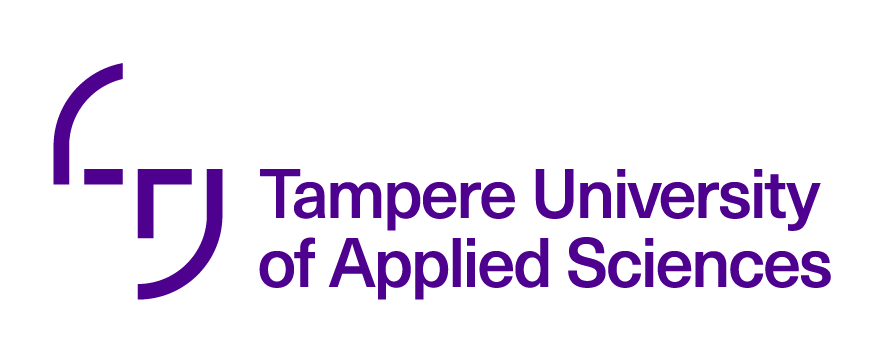Copyrights and Contracts (5 cr)
Code: IM00FY03-3002
General information
Enrolment period
16.05.2023 - 09.09.2023
Timing
31.08.2023 - 16.12.2023
Credits
5 op
Virtual portion
4 op
RDI portion
2 op
Mode of delivery
20 % Contact teaching, 80 % Distance learning
Unit
Media and Arts
Campus
TAMK Mediapolis
Teaching languages
- English
Seats
15 - 30
Degree programmes
- Bachelor's Degree Programme in Media and Arts
Teachers
- Harri Karvinen
- Tomi Leino
Person in charge
Tomi Leino
Groups
-
19MEDIAART
-
22MEDIAART
-
20MEDIAART
-
21MEDIAART
-
23MEDIAARTDegree Programme in Media and Arts
Objectives (course unit)
Students know the essentials of copyright and contract issues in the creative field, for example, in Music, AV production and Fine Arts.
Content (course unit)
Essentials of copyright and contract issues in the creative field, for example, in Music, AV-production and Fine Arts. Essential is understanding the principles of Copyright and Contract legislation and the need for them. Simultaneously important is to understand the environment of the creative field, including organisations and entrepreneurship.
Assessment criteria, satisfactory (1-2) (course unit)
The student is able to tell essential principles in one’s own creative field and is capable of explaining where they are needed for. The student is able to participate in the workshop as a representative of one’s own field of art. However, activity and searching sources are mostly lacking. The student can name a few copyright organisations.
Assessment criteria, good (3-4) (course unit)
The student is able to tell essential principles in one’s own creative fields and is capable of explaining where they are needed for. The student is able to participate in the workshop as a representative of one’s own field of art and is able to take into account other students from different fields with their own copyrights. The student participates constructively to a conversation about copyrights and can argue their opinions. The student can name copyright organisations, tell their functions and search information and ask for advice.
Assessment criteria, excellent (5) (course unit)
The student is able to tell essential principles in one’s own creative fields and is capable of explaining where they are needed from different perspectives (author, performer, financer). The student is able to take into account these principles in one’s own professional life. The student is able to be an expert in the workshop and thus can enhance and emphasize the meaning of copyrights in cooperation. The student participates in the conversation professionally, openly and interactively. The student knows inclusively copyright organisations. The student can look for information and ask for advice when needed from suitable actors in the creative field.
Assessment criteria, pass/fail (course unit)
The student has not returned the tasks and has not participated in the workshop according to the instructions.
Location and time
weeks
Exam schedules
Workshop is obligatory, replaces exam
Assessment scale
0-5
Teaching methods
Indenpendent work, group work, personal guidance
Learning materials
all material in Moodle site
Student workload
2-3 h lectures and personal meeting with teacher, approximately 125 h self study with tasks, 10 h workshop
Content scheduling
1. Kick-off meeting, presentation of the content of the course and timetable, week 1
2. independent studying in Moodle site/basics of copyrights, week 2-3
3. Personal meeting with teacher, week 4
4. independent studying in Moodle site/ advanced studies of copyrights, week 5-7
5. workshop of copyrights, week 8
Completion alternatives
n/a
Assessment criteria - satisfactory (1-2) (Not in use, Look at the Assessment criteria above)
The student is able to tell essential principles in one’s own creative field and is capable of explaining where they are needed for. The student is able to participate in the workshop as a representative of one’s own field of art. However, activity and searching sources are mostly lacking. The student can name a few copyright organisations.
Assessment criteria - good (3-4) (Not in use, Look at the Assessment criteria above)
The student is able to tell essential principles in one’s own creative fields and is capable of explaining where they are needed for. The student is able to participate in the workshop as a representative of one’s own field of art and is able to take into account other students from different fields with their own copyrights. The student participates constructively to a conversation about copyrights and can argue their opinions. The student can name copyright organizations, tell their functions and search information and ask for advice.
Assessment criteria - excellent (5) (Not in use, Look at the Assessment criteria above)
he student is able to tell essential principles in one’s own creative fields and is capable of explaining where they are needed from different perspectives (author, performer, financer). The student is able to take into account these principles in one’s own professional life. The student is able to be an expert in the workshop and thus can enhance and emphasize the meaning of copyrights in cooperation. The student participates in the conversation professionally, openly and interactively. The student knows inclusively copyright organizations. The student can look for information and ask for advice when needed from suitable actors in the creative field.
